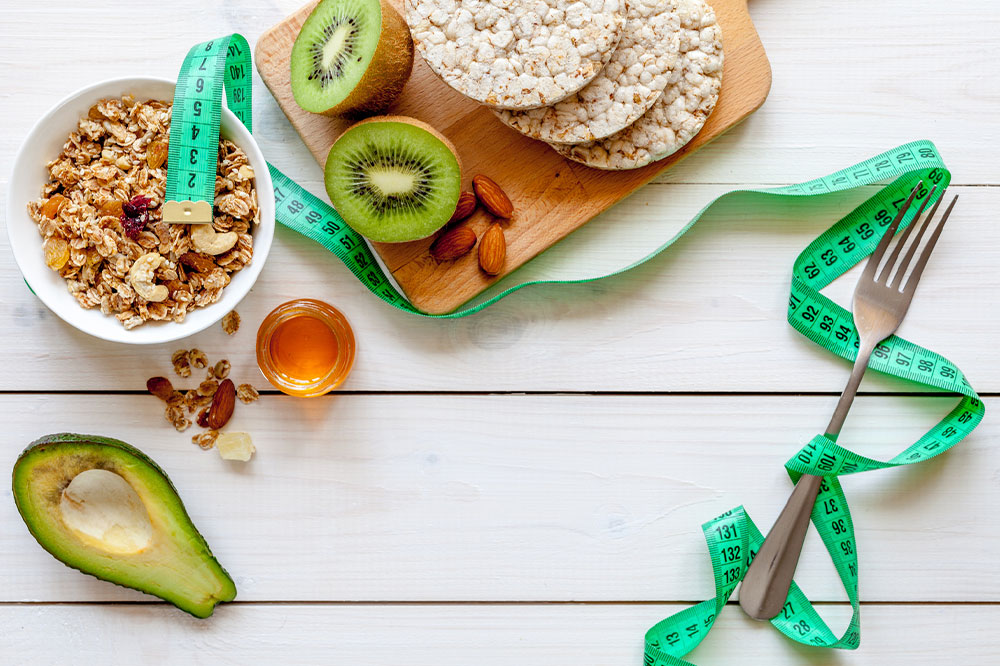BRAT Diet – Best Foods to Include and Avoid
Diet is the number one factor determining the outlook for many existing health conditions. Apart from treatment, prescriptions, and lifestyle changes, the body benefits immensely from changes in nutrition and on one’s road to recovery. Symptoms like nausea, vomiting, or diarrhea are common flare-ups noticed among most known health complications. Here is where nutritionists suggest incorporating BRAT diet foods, among other necessary changes in daily nutrition, to overcome these symptoms.
What is a BRAT diet?
BRAT is simply an acronym for Bananas-Rice-Applesauce-Toast. And it is one of the recommended nutrition changes for people who suffer from nausea and diarrhea.
Bananas
For nausea, bananas help stimulate the production of mucus on the stomach lining.

Rice
For nausea, as per the BRAT diet list, rice is also one of the better starchy options to calm an upset stomach. That’s because rice is bland, colorless, and odorless, with a high-calorie content that is easy to prepare and eat. The body tolerates it easily and doesn’t trigger nausea due to reflux.
Applesauce
Applesauce is another suggested nutrition item for the BRAT diet. It’s a good light source of energy that is not too hard on the stomach and prevents nausea from developing severely. Applesauce is also a rich source of soluble fibers that are easily digested and doesn’t necessarily put pressure on the digestive tract. This can help prevent flare-ups in conditions like diarrhea.
Toast
Toast is the final piece of the puzzle that completes the BRAT diet. Dry foods like toast, cereals, and even breadsticks help provide the necessary nutrition without having nausea flare-ups. This is because these foods help calm the stomach and prevent any related issues. It’s also okay to eat some dry toast to add bulk to the stool and prevent severe diarrhea from developing.
In recent years, nutritionists have also suggested a number of additional sources of nutrition apart from the BRAT diet foods to better manage nausea and diarrhea. These foods and beverages help break away from the restriction of the four foods to include more flavor without upsetting the stomach.
BRAT diet food list
It’s important to include multiple sources of vitamins, minerals, and nutrients from these foods.
Simple proteins and probiotics
Rice cereals, boiled eggs, scrambled eggs cooked with little oil, rice porridge, oatmeal, pancakes, waffles, and rice cakes are acceptable sources of proteins and fiber for better digestion. In addition, nutritionists also recommend probiotics be added to boost gut bacteria necessary for digestion. Low-fat yogurt is one of the better options in dairy.
Soft fruits and boiled vegetables
Apart from bananas and applesauce, one can also include soft fruits like avocados, pumpkins, and melons to boost hydration and include essential omega 3s for digestion and immunity. Canned fruit packed in water is also acceptable as long as it does not contain heavy sugars and preservatives. In addition, one can consider adding nutritious steamed or boiled carrots, potatoes, green beans, and squash. These vegetables are easily digested and prevent flare-ups of nausea or diarrhea.
Meats
Lean proteins like chicken, turkey and tuna are excellent foods to include apart from the restrictive BRAT diet for adults. It is important that these meats are prepared using minimum condiments and additives to enhance the flavor.
Beverages
Vomiting and diarrhea result in excessive fluid loss from the body. This is one of the reasons why oral rehydration is also a crucial step to follow with the BRAT diet. A simple solution of sugar and salt water can be prepared at home to rehydrate and restore the necessary electrolyte balance. In addition, nutritionists suggest including some apple juice, bone broth, coconut water, and even Pedialyte drinks in the diet to replenish the water content in the body.
BRAT diet foods list for adults to avoid
It is also important to eliminate certain foods and beverages in moderation.
Dairy
Apart from yogurt and kefir, it is important to avoid full fat dairy products like milk, cheeses, and condiments made using milk.
Fatty red meats
Red meats are difficult to digest and can put tremendous pressure on the digestive tract, so it is better to cut down on salmon, sardines, pork, veal, and other deli cuts of red meat. These meats also contain preservatives and additives.
Raw veggies and citrus fruits
Avoid raw vegetables like beets, corn, cabbage, broccoli, and onions, and citrus fruits like oranges, pineapples, grapefruits, lemons, and limes. The citrus will stir up acids in the stomach, causing a reflux that triggers uneasiness.
Hot or cold beverages
Drinking hot or cold beverages can stir up stomach acids resulting in discomfort due to the temperature of the beverage.
Caffeine and flavored sodas
Nutritionists also suggest eliminating caffeinated beverages and flavored sodas that contain artificial coloring, additives, preservatives, and refined sugars as they can trigger digestive problems.

